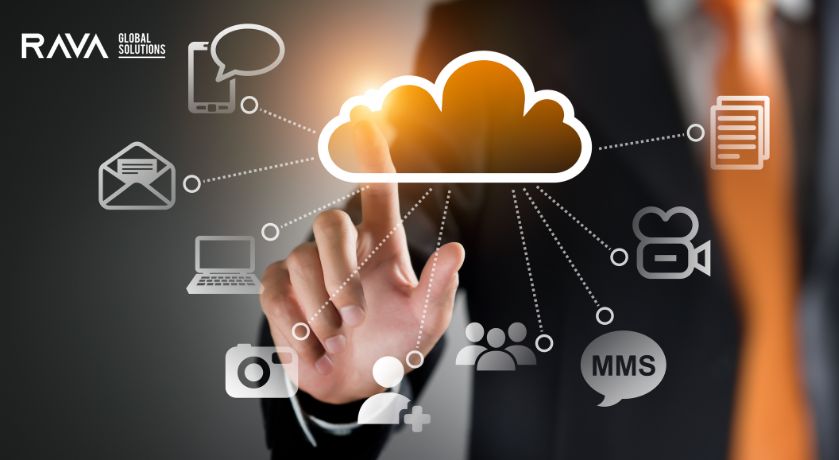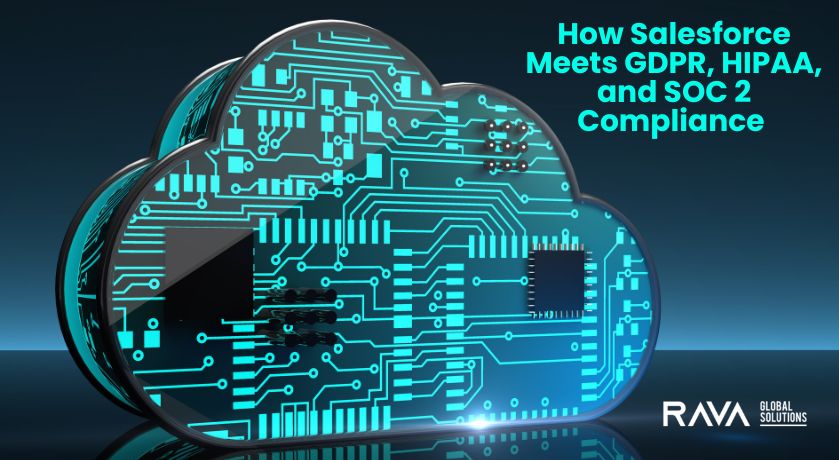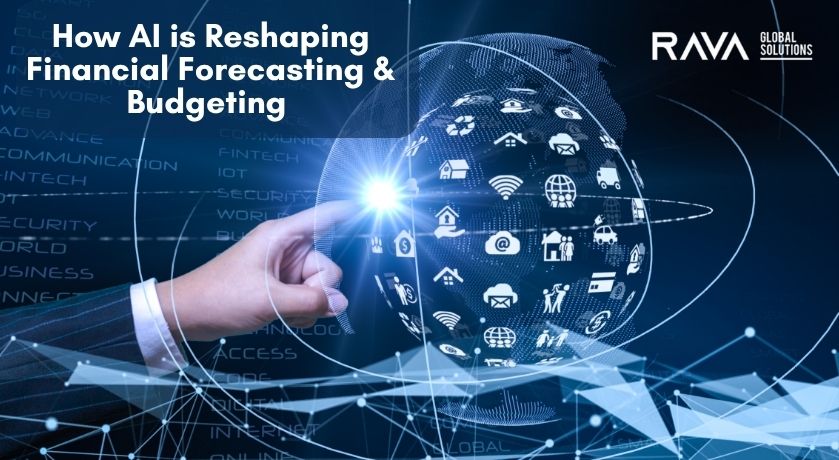Cloud adoption has transformed the way businesses manage customer data, but it has also introduced new compliance and security concerns. Regulations like GDPR, HIPAA, and SOC 2 demand strict data protection standards—and companies that fail to comply risk severe fines and reputational damage.
Fortunately, Salesforce, one of the world’s leading cloud CRM platforms, has made compliance and security a top priority. At RAVA Global Solutions, a Top Salesforce Partner in the USA, we help businesses implement Salesforce in a way that meets industry regulations while maintaining flexibility and scalability.
In this blog, we explore how Salesforce addresses compliance with GDPR, HIPAA, and SOC 2—and how your business can leverage these capabilities.
Understanding the Compliance Landscape
GDPR: General Data Protection Regulation
- Applies to any company handling EU residents’ personal data.
- Requires consent management, data minimization, and the right to access, correct, and delete personal data.
HIPAA: Health Insurance Portability and Accountability Act
- Applies to healthcare providers, payers, and their partners in the U.S.
- Requires protection of Protected Health Information (PHI), audit trails, and strict access controls.
SOC 2: Service Organization Control Type 2
- Industry-standard framework for data security, availability, processing integrity, confidentiality, and privacy.
- Relevant for SaaS and cloud providers that manage sensitive customer data.
How Salesforce Enables GDPR Compliance
Salesforce provides several out-of-the-box and configurable features to support GDPR requirements:
1. Consent Management
Salesforce allows businesses to create data models and workflows that track customer consent across marketing, sales, and service touchpoints.
2. Data Subject Rights
Through the Data Privacy Manager and API access, businesses can:
- Retrieve personal data on request (Right of Access)
- Correct inaccurate data (Right of Rectification)
- Delete data on request (Right to Erasure)
3. Data Minimization
Custom fields and objects enable companies to collect only the data they need—and no more.
4. Audit Trails & Reporting
Field history tracking, login history, and event monitoring help organizations monitor access and data changes.
How Salesforce Meets HIPAA Requirements
Salesforce can be configured to comply with HIPAA when used appropriately. Salesforce offers a Business Associate Agreement (BAA) to customers managing PHI on certain products like Salesforce Health Cloud and Service Cloud.
Key capabilities include:
- Encryption at Rest and in Transit
Salesforce Shield provides encryption for sensitive fields, along with event monitoring and platform encryption.
- Role-Based Access Controls (RBAC)
Administrators can assign user permissions and profiles that limit PHI access to only those who need it.
- Audit Logging
Shield Event Monitoring and Field Audit Trail help create robust audit logs, a HIPAA requirement for tracking access to PHI.
- Secure APIs
Secure, token-based APIs allow integration with healthcare systems without compromising data integrity.
How Salesforce Achieves SOC 2 Compliance
Salesforce itself is SOC 2 certified, meaning its underlying infrastructure, processes, and controls meet the highest standards of data security.
Key measures include:
1. Operational Security Controls
Salesforce’s internal teams follow rigorous security practices, including continuous vulnerability scanning, patch management, and access control.
2. Data Center Security
Salesforce data centers meet international standards for redundancy, uptime, and physical security.
3. Disaster Recovery & Backup
Salesforce has robust disaster recovery procedures and backs up data across geographically separate regions.
4. Continuous Audits
External auditors regularly verify Salesforce’s SOC 2 controls.

Compliance is Shared Responsibility
It’s important to note that Salesforce’s compliance certifications cover the platform itself. However, each company is responsible for configuring Salesforce appropriately, training employees, and enforcing internal policies.
As a Top Salesforce Partner in the USA, RAVA Global Solutions helps clients:
- Configure Salesforce for GDPR, HIPAA, and SOC 2 alignment
- Develop secure data architectures
- Implement role-based access and encryption
- Train teams on compliance best practices
- Continuously monitor and audit system usage
Final Thoughts
Compliance in the cloud isn’t optional—it’s essential. Salesforce offers a strong foundation for meeting global data protection standards, but businesses must take proactive steps to configure, monitor, and govern their systems effectively.
With the right partner, compliance becomes a driver of trust and growth—not a barrier.
Ready to align your Salesforce implementation with industry regulations? Contact RAVA Global Solutions to learn how we can help.
Frequently Asked Questions (FAQs)
Q1: Is Salesforce automatically compliant with GDPR and HIPAA?
No. Salesforce offers compliance-ready tools, but organizations must configure them properly and follow industry-specific processes.
Q2: What Salesforce products are HIPAA compliant?
Salesforce Health Cloud and Service Cloud can be configured for HIPAA compliance when covered by a BAA.
Q3: Does Salesforce encrypt data by default?
Yes, Salesforce encrypts data in transit and at rest, but additional encryption layers (Shield Platform Encryption) are recommended for sensitive fields.
Q4: Can Salesforce be used to fulfill data subject requests under GDPR?
Yes. Salesforce’s APIs and Data Privacy Manager enable organizations to process data access, correction, and deletion requests.
Q5: How can RAVA Global Solutions help?
We help configure Salesforce securely, integrate compliance best practices, and support ongoing monitoring to keep your environment aligned with GDPR, HIPAA, and SOC 2.






